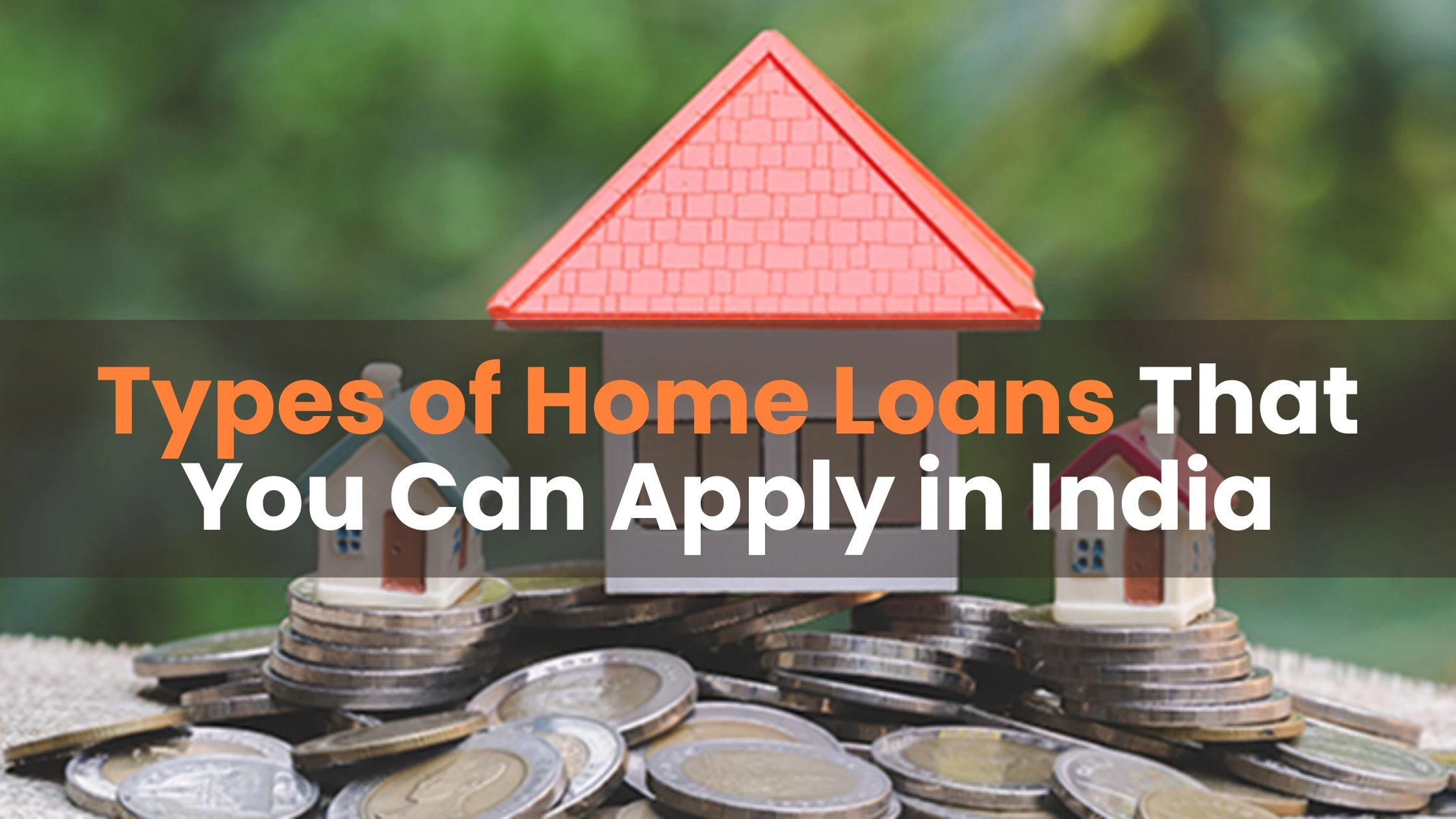Table of Content
▲
Purchasing a home is a significant milestone, and selecting the right home loan is crucial to making this dream a reality. In India, several types of home loans cater to diverse needs, each with its own set of features, benefits, and eligibility criteria. This comprehensive guide explores the various types of home loans available, helping you make an informed decision.
1. Home Purchase Loan
This is the one of most common types of home loans, designed for individuals looking to buy a new or resale property. Lenders offer these loans based on the property's market value and the borrower's repayment capacity.
Key Features:
- Loan Amount: Typically up to 90% of the property's market value.
- Repayment Tenure: Up to 30 years.
- Interest Rates: Competitive rates, often with options for fixed or floating rates.
2. Home Construction Loan
Ideal for individuals who own a plot and wish to construct a house, this loan finances the construction costs.
Key Features:
- Loan Amount: Depends on the estimated construction cost and the property's value.
- Repayment Tenure: Up to 30 years.
- Disbursement: In stages, aligned with construction milestones.
Also Read: Home Loan vs Mortgage Loan: Key Differences Explained
3. Home Improvement Loan
This loan assists homeowners in renovating or repairing their existing property.
Key Features:
- Loan Amount: Based on the property's current value and the cost of improvements.
- Repayment Tenure: Up to 15 years.
- Interest Rates: Generally higher than home purchase loans due to the nature of the loan.
4. Home Extension Loan
For homeowners looking to expand their existing property, such as adding a room or floor.
Key Features:
- Loan Amount: Determined by the property's value and the cost of extension.
- Repayment Tenure: Up to 15 years.
- Eligibility: Must have owned the property for a certain period.
5. Land Purchase Loan
This loan is for individuals intending to buy a plot of land for future construction or investment purposes.
Key Features:
- Loan Amount: Typically up to 70% of the property's value.
- Repayment Tenure: Up to 15 years.
- Eligibility: Varies based on the lender's policies and the property's location.
6. Balance Transfer Loan
Allows homeowners to transfer their existing home loan to another lender offering better terms, such as lower interest rates.
Key Features:
- Interest Rates: Often lower than the current loan rate.
- Processing Fees: May include charges for processing and legal documentation.
- Eligibility: Depends on the borrower's repayment history and the outstanding loan amount.
7. Top-Up Loan
An additional loan on an existing home loan, providing extra funds for various purposes like education, medical expenses, or travel.
Key Features:
- Loan Amount: Based on the outstanding principal of the existing loan.
- Interest Rates: Generally higher than the original home loan.
- Repayment Tenure: Aligned with the original loan tenure.
8. Pradhan Mantri Awas Yojana (PMAY) Loan
A government initiative aimed at providing affordable housing to the economically weaker sections, lower-income groups, and middle-income groups.
Key Features:
- Interest Subsidy: Subsidies on interest rates for eligible borrowers.
- Eligibility: Subject to income criteria and other conditions.
- Loan Amount: Depends on the applicant's income and the property's location.
9. NRI Home Loan
Specifically designed for Non-Resident Indians (NRIs) to purchase, construct, or renovate property in India.
Key Features:
- Loan Amount: Up to 80% of the property's value.
- Repayment Tenure: Up to 20 years.
- Eligibility: Requires proof of NRI status and stable income.
10. Women’s Home Loan
Aimed at empowering women, this loan offers benefits like lower interest rates when the woman is the sole or co-applicant.
Key Features:
- Interest Rates: Reduced rates compared to standard home loans.
- Eligibility: Applicant must be a woman; can be a sole or co-applicant.
- Additional Benefits: Some lenders offer higher loan amounts or longer tenures.
Eligibility Criteria for Home Loans
While specific eligibility criteria may vary among lenders, common factors include:
- Age: Typically between 21 and 65 years.
- Income: Stable and sufficient income to repay the loan.
- Credit Score: A good credit score enhances the chances of loan approval and may result in better interest rates.
- Employment Status: Salaried individuals, self-employed professionals, and business owners may be eligible.
- Property Type: The property should meet the lender's criteria regarding location, construction quality, and legal clearances.
Documents Required
Common documents include:
- Identity Proof: Aadhaar card, passport, voter ID, etc.
- Address Proof: Utility bills, rental agreements, etc.
- Income Proof: Salary slips, bank statements, tax returns, etc.
- Property Documents: Sale deed, title deed, approved building plan, etc.
Conclusion
Selecting the appropriate home loan is a pivotal decision in the home-buying process. Understanding the various types of home loans available, along with their features and eligibility criteria, can help you make an informed choice that aligns with your financial goals and needs. It's advisable to consult with financial advisors or loan experts to determine the best option tailored to your circumstances.
Also Read: RBI Cuts Repo Rate: How It Will Reduce Your Home Loan EMIs



_1772441702.webp)





Ans 1. Common types include home purchase loans, home construction loans, home improvement loans, land purchase loans, and Pradhan Mantri Awas Yojana (PMAY) loans, among others.
Ans 2. Eligibility criteria include age (typically 21–65 years), stable income, a good credit score, and employment status. The property must meet the lender's standards.
Ans 3. A home construction loan is for individuals who own a plot and wish to finance the construction of a house. The loan is disbursed in stages based on construction milestones.
Ans 4. Yes, NRIs can apply for home loans in India to purchase, construct, or renovate property. They must provide proof of NRI status and have a stable income.
Ans 5. A balance transfer loan allows you to transfer an existing home loan to a different lender offering better terms, such as lower interest rates or better repayment options.
Ans 6. PMAY loans provide interest subsidies to economically weaker sections, lower-income groups, and middle-income groups to make housing affordable.
Ans 7. Documents required include identity proof (Aadhaar, passport), address proof (utility bills), income proof (salary slips, tax returns), and property-related documents like the sale deed and approved building plan.
Ans 8. Women’s home loans often come with lower interest rates and additional benefits, such as higher loan amounts or extended repayment tenures, to encourage homeownership among women.
Ans 9. Consider interest rates, repayment tenure, processing fees, loan amount eligibility, and any government schemes applicable to your profile.
Ans 10. The repayment tenure for home loans can go up to 30 years, depending on the type of loan and the lender’s policies.